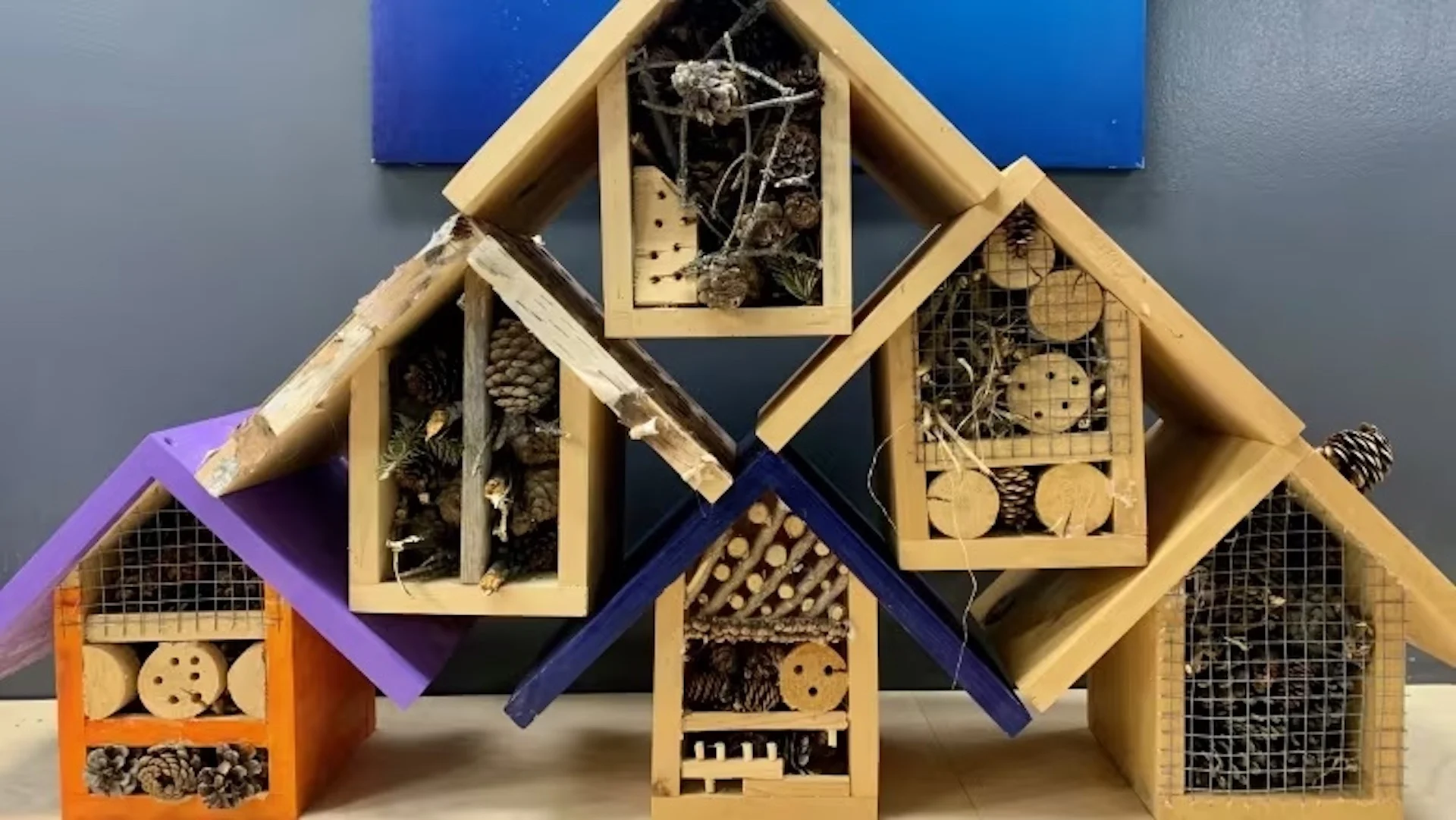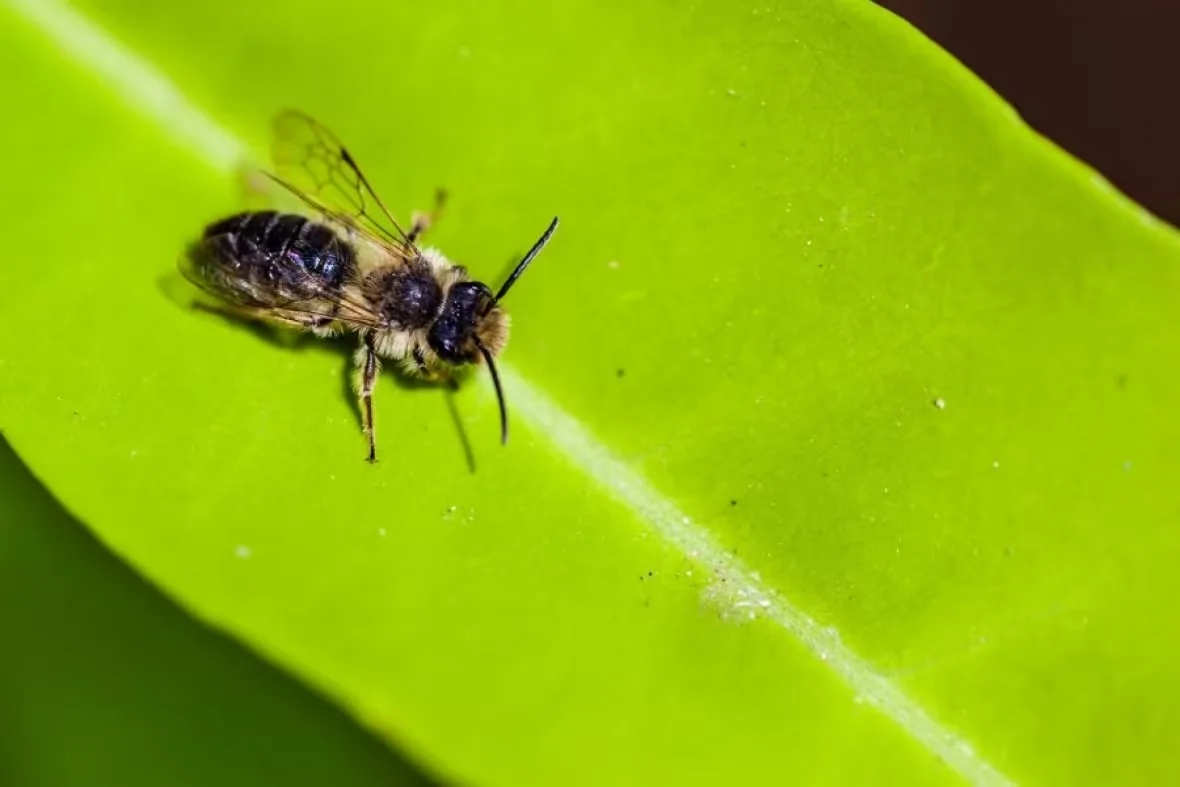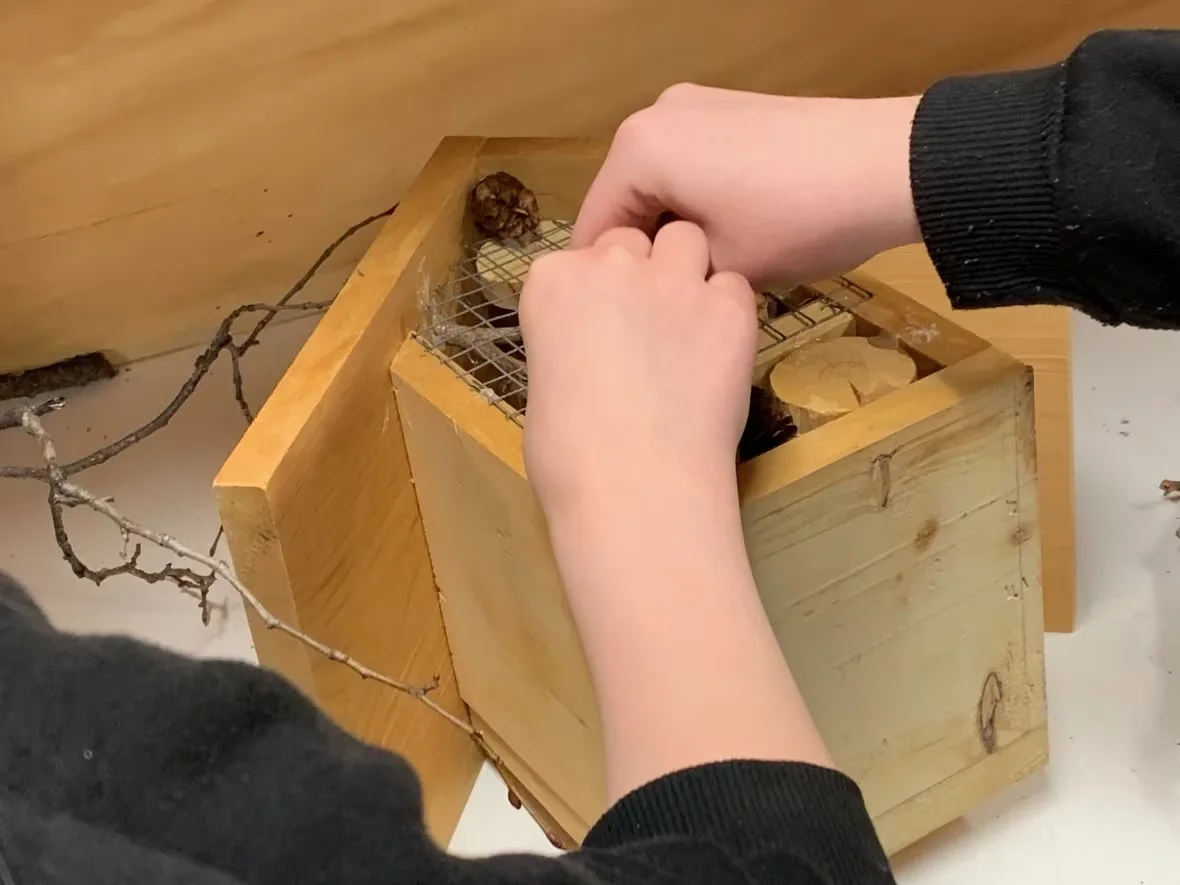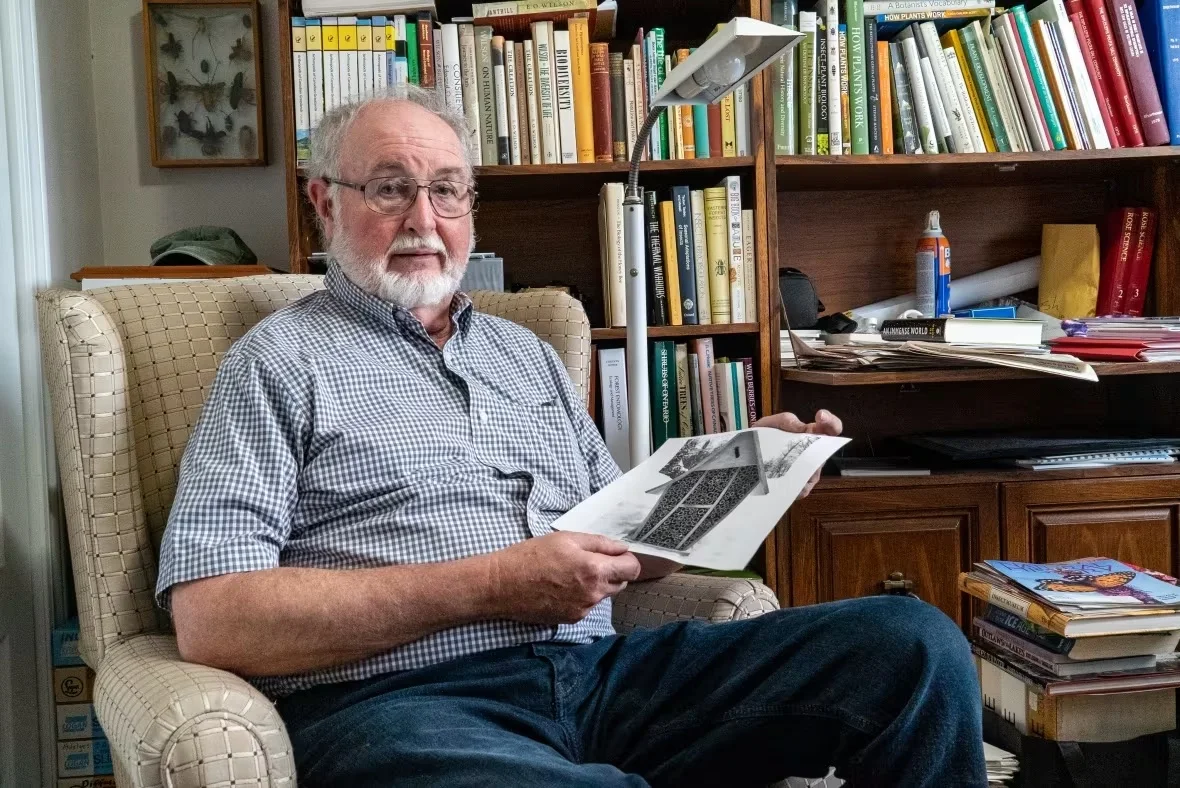
Bee my guest: Pollinators housed in hotels as spring unfolds
Just like humans, some bee species are struggling with a housing supply shortage.
Similarities between the bee and human experience don't stop there, according to Laurentian retired professor of entomology Joe Shorthouse.
"Bees like to live together, but they still need their own place. Just like units in an apartment complex," he said.
SEE ALSO: Native bee in Canada under attack from newfound invasive species
Once they move in somewhere, they'll do what some humans do: stock up on food and set up rooms for their offspring.
This is where bee hotels come in.
These are wooden structures that provide a nesting space for some bee species.
They can be made from wood scraps, milk cartons, bamboo sticks, cardboard, and other natural materials. They can also be bought online or in retail stores.

Leaf cutter bees can be found in gardens and camping sites. They thrive in bee hotel structures. (Ontario Parks)
Bee hotels just need to have a tube-like opening in their structure for a female bee to set up her home. In northern Ontario, there are hundreds of bee species that spend their days foraging for pollen.
They tend to be smaller than the introduced honey bees, and don't collect honey.
"Many of these bees may not find a place to build their nest to raise a family," he said. "As a result, they are going to die before they have a chance to do so."
Shorthouse says that setting up bee hotels in gardens, parks and other green spaces can increase the odds of these animals surviving.
"We're only providing something nature already provides, but adding more," he said.
'It's kind of a leave it and forget it type situation'
Jayson Stewart, a visual arts teacher at the Espanola High School, wanted to offer a project that was both visually appealing and impactful.
After a discussion on the importance of biodiversity, his Grade 9 students decided to complete an unfinished bee hotel project started by a previous teacher.
"It was very easy because all of the materials were scrap materials," he said.

Jayson Stewart says that little projects like these can help students feel like they are making a difference. (Submitted by Jayson Stewart)
"Pine cones, branches, and other natural materials were collected by students on a very quick field trip around our community," said Stewart.
With a little bit of creativity, the class built 10 bee hotels they are now giving away. "The goal is to make sure they make their way into people's gardens."
Stewart thinks it will be easy to convince residents to install bee hotels around their property.
"It's a leave it and forget it type situation," he said.
Attracting biodiversity in your garden
Shorthouse lives on Manitoulin Island in the summer. He uses his camp there as a base to study the area's biodiversity.
He is fascinated by the activity he sees in the bee hotel he set up near his trailer.
"You see all of these bees flying in, you don't know where they're coming from or how long they've been flying," he said. "But amazingly, they find your bee hotel in your yard with all of the other yards that are nearby."

Joe Shorthouse taught entomology for 37 years. (Aya Dufour/CBC)
Shorthouse says bee hotels add to the intrigue of having an animal in your backyard.
Every tube built into the hotel typically hosts between 10 and 20 larvae of one specific bee species.
Once they are old enough, they fly away to find a home of their own.
They don't sting, according to this retired professor
Shorthouse adds that, unlike wasps or honey bees, the smaller native bees that use the hotels don't sting.
"They are afraid of people. They may land on you, because they see sweat as a source of drinking water. But they won't bother you," he said.
He says there are some studies that show wasps can also be attracted to bee hotels, but that hasn't been his experience.
WATCH: Size doesn't matter when it comes to helping pollinators
Thumbnail courtesy of Jayson Stewart.
The story, written by Aya Dufour, was originally published for CBC News.









